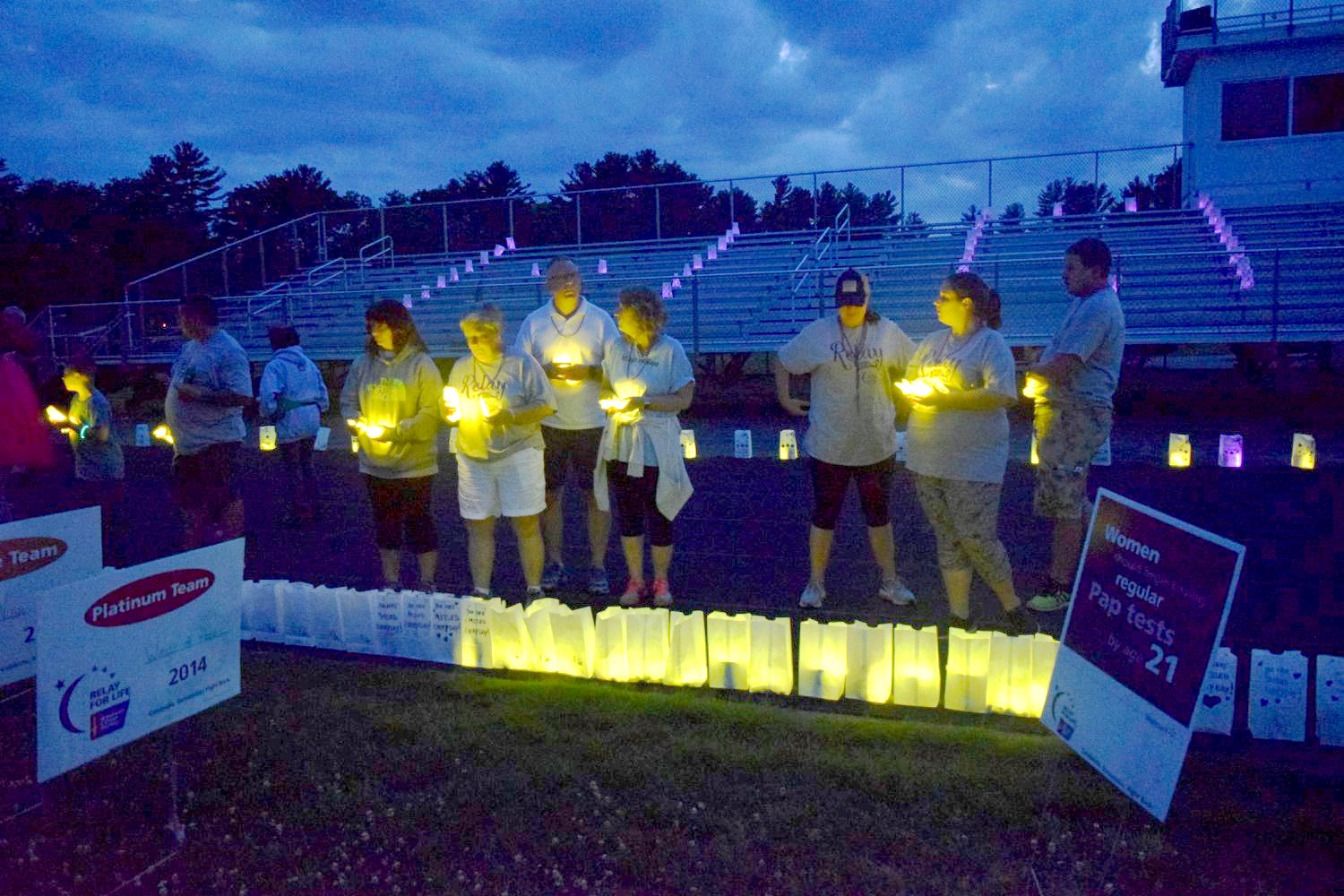Relay For Life more important than ever this year
Back in the late 1950s and early ’60s, when I attended Hebrew School in Dorchester, Massachusetts, I don’t recall my teachers talking about the Jewish concept of tikkun olam, repairing the world. But I did hear a lot about giving and performing mitzvot, especially from my parents, who made a point of helping the less fortunate.
My parents supported many charities, including the Jimmy Fund, the major fundraising arm of the Dana-Farber Cancer Institute. My father’s support for the Jimmy Fund contributed to my involvement, for the last two decades, in a major fundraiser for the American Cancer Society: Relay For Life.
That event began nationally in 1985, when Dr. Gordon Klatt walked and ran for 24 hours around a track in Tacoma, Washington. He covered 83.6 miles and raised $27,000. Now, the event is a fixture in communities across the country – or at least it was until the coronavirus pandemic forced the relays online last year.
The Relay For Life of Greater Attleboro, which began in 1999, attracted hundreds of volunteers and participants to a local high school track over an 18-hour period before 2020, when the pandemic stopped it in its tracks.
I’ve been involved with the event as a participant, and for the last several years as a volunteer, for all but the first year.
This year, I’m helping to organize two smaller in-person events in late June, including a celebration of a poetry-essay event that the relay committee held in April, in partnership with the Attleboro Public Library. Called “Slam Cancer: How I’ve Been Touched by the Disease,” the event invited people to write about how cancer has affected them.
The purpose of the poetry-essay event was to raise community awareness about the need to fund cancer research, treatment and patient care. That’s become especially important in 2021, since donations fell significantly last year.
The 2020 Greater Attleboro virtual event raised a little more than $60,000; in 2019, when events were live, it took in more than $150,000. Nationwide, the story was just as bleak last year, as donations fell by 50%, according to the cancer society.
A grimmer indication of the pandemic’s negative effect on cancer treatment is this fact from ACS CAN, the cancer society’s advocacy arm: “From February to mid-April 2020, the rate of some cancer screenings fell by over 80 percent. The COVID pandemic led to many cancer exams being canceled as others were afraid to visit a doctor’s office.”
As a result, many people were ultimately diagnosed with more advanced forms of cancers than they would have been had screenings not been interrupted by the pandemic.
That alarming fact makes the events planned for this year’s Relay For Life of Greater Attleboro vital. These events include:
- A drive-through relay on Saturday, June 19, 6 to 9 p.m., at Norton High School, to honor survivors and remember cancer victims.
- A gathering on Saturday, June 26, 6 to 9 p.m., in Attleboro’s Balfour Riverwalk Park, where people will be invited to read their “Slam Cancer” submissions.
Holding actual events – as opposed to virtual events – is especially good news for those striving to beat cancer, because reestablishing a sense of community is essential to the Relay For Life’s purpose.
Participants are often motivated by personal experiences that compel them to return yearly in their quest to “Slam Cancer.” Over the years, the relay has also offered a chance for people to remember their loved ones affected by the disease and to commiserate with others. People have always found an empathetic soul to talk to or a willing shoulder to cry on.
Like my fellow participants, the desire to see the disease eradicated continues to motivate me. Here’s why:
One of the saddest aspects of participating in the relay has always been when someone who appeared one year as a survivor on your list of luminaria (candles lit for cancer survivors or victims) must be remembered as a victim the next year. That’s happened far too often, but one of the most heartbreaking examples for me involved a cousin with whom I had just renewed strong ties.
Jack, the youngest of three brothers, grew up in Ontario, Canada, but, like his older brothers, he became a Boston Red Sox fan because my dad and I would take them to Fenway Park during their family’s annual summer visits to Boston in the 1960s.
Later, when we were busy raising families, it became harder to stay in touch. We saw Jack during a visit to Ontario in 2001, and then met twice in 2012: I took Jack and his family to McCoy Stadium to see the Pawtucket Red Sox in July and we visited them in Ontario in August.
Two summers later, Jack and his family met us in Quebec City, where we were vacationing.
We were trying to work out another joint summer trip when Jack was diagnosed with pancreatic cancer, in April 2017. He was one of my survivor luminaria in that June’s relay, but he lost his cancer battle that October – and has been one of my memorial luminaria ever since.
My experience, unfortunately, isn’t unique, because cancer remains one of the most insidious and equal-opportunity diseases. By that I mean it’s often relentless as it afflicts women, men and girls and boys of all ages, religions and races.
That’s why I continue to relay, and it’s why I hope you’ll consider joining us at one of the events planned for June so we can “Slam Cancer” once and for all.
To either participate or volunteer, or to donate to the Relay For Life of Greater Attleboro, go to www.relayforlife.org/greaterattleboroma.
LARRY KESSLER, a freelance writer from North Attleboro, is a member of the Relay For Life of Greater Attleboro organizing committee. He can be reached at larrythek65@gmail.com and blogs at larrytheklineup.blogspot.com.








